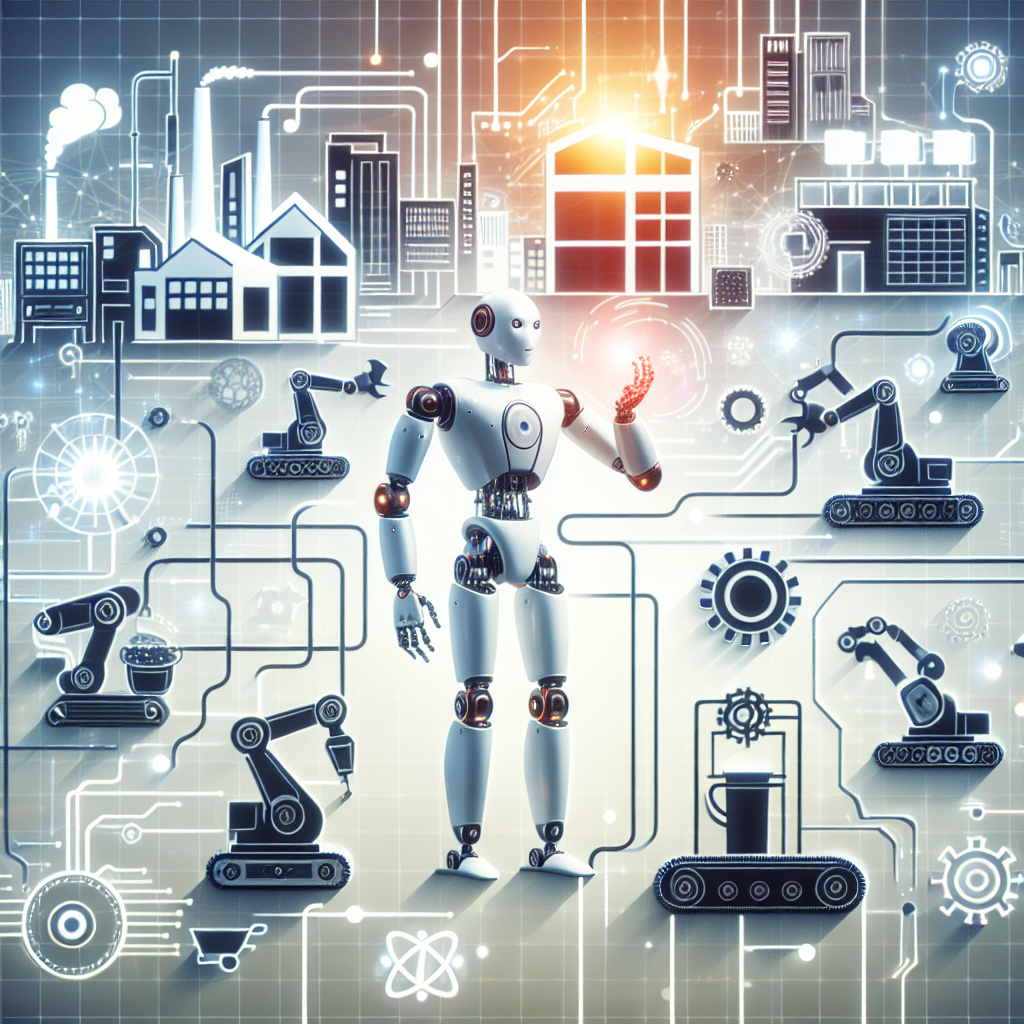Artificial General Intelligence (AGI) is a term that refers to a type of artificial intelligence that is capable of understanding and learning any intellectual task that a human being can. This type of AI is seen as a game-changer in the world of robotics and automation, as it has the potential to revolutionize many industries and aspects of our daily lives. In this article, we will explore what AGI is, how it works, and the impact it is expected to have on the future.
What is AGI?
AGI is a type of artificial intelligence that is designed to be able to perform any intellectual task that a human can. This includes tasks such as reasoning, problem-solving, learning, and understanding natural language. Unlike narrow AI, which is designed to perform specific tasks, AGI is meant to be able to adapt and learn new tasks on its own.
How does AGI work?
AGI works by using algorithms and neural networks to process and analyze data in a way that mimics the human brain. These algorithms allow the AI to learn from its experiences and improve its performance over time. AGI systems are typically trained on large amounts of data to help them learn and develop their skills.
What are the benefits of AGI?
AGI has the potential to revolutionize many industries and aspects of our daily lives. Some of the benefits of AGI include:
– Increased efficiency: AGI can perform tasks much faster and more accurately than humans, leading to increased efficiency in many industries.
– Improved decision-making: AGI can analyze large amounts of data and make complex decisions quickly, leading to better outcomes in areas such as finance, healthcare, and transportation.
– Automation of repetitive tasks: AGI can automate many repetitive tasks, freeing up humans to focus on more creative and complex tasks.
– Personalized experiences: AGI can analyze data to provide personalized experiences for users, such as personalized recommendations in e-commerce or personalized healthcare treatments.
What are the potential risks of AGI?
While AGI has the potential to bring many benefits, there are also risks associated with its development. Some of the potential risks of AGI include:
– Job displacement: AGI has the potential to automate many jobs, leading to job displacement for many workers.
– Ethical concerns: AGI raises ethical concerns around issues such as privacy, bias, and accountability.
– Security risks: AGI systems could be vulnerable to hacking and misuse, leading to security risks.
– Unintended consequences: AGI systems could have unintended consequences that are difficult to predict.
How is AGI being used today?
While AGI is still in the early stages of development, there are already some examples of how it is being used today. Some examples of AGI applications include:
– Virtual assistants: Virtual assistants such as Siri and Alexa use AGI to understand and respond to natural language queries.
– Autonomous vehicles: AGI is being used in autonomous vehicles to help them navigate and make decisions on the road.
– Healthcare: AGI is being used in healthcare to analyze medical images, predict patient outcomes, and develop personalized treatment plans.
What is the future of AGI?
The future of AGI is still uncertain, but many experts believe that it has the potential to revolutionize many industries and aspects of our daily lives. Some of the potential future developments in AGI include:
– Advanced robotics: AGI could lead to the development of advanced robots that can perform complex tasks in a variety of industries.
– Personalized experiences: AGI could lead to more personalized experiences for users in areas such as entertainment, healthcare, and education.
– Enhanced decision-making: AGI could help businesses and governments make better decisions by analyzing large amounts of data and predicting outcomes.
FAQs
Q: How is AGI different from narrow AI?
A: AGI is designed to be able to perform any intellectual task that a human can, while narrow AI is designed to perform specific tasks.
Q: What are some examples of AGI applications?
A: Some examples of AGI applications include virtual assistants, autonomous vehicles, and healthcare.
Q: What are the potential risks of AGI?
A: Some potential risks of AGI include job displacement, ethical concerns, security risks, and unintended consequences.
Q: What is the future of AGI?
A: The future of AGI is still uncertain, but many experts believe that it has the potential to revolutionize many industries and aspects of our daily lives.
In conclusion, AGI is a game-changer in the world of robotics and automation, with the potential to revolutionize many industries and aspects of our daily lives. While there are risks associated with its development, the benefits of AGI are vast and could lead to a more efficient, personalized, and innovative future. As AGI continues to develop, it will be important for policymakers, businesses, and society as a whole to consider the ethical and societal implications of this powerful technology.

